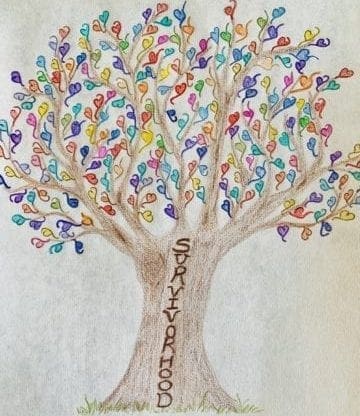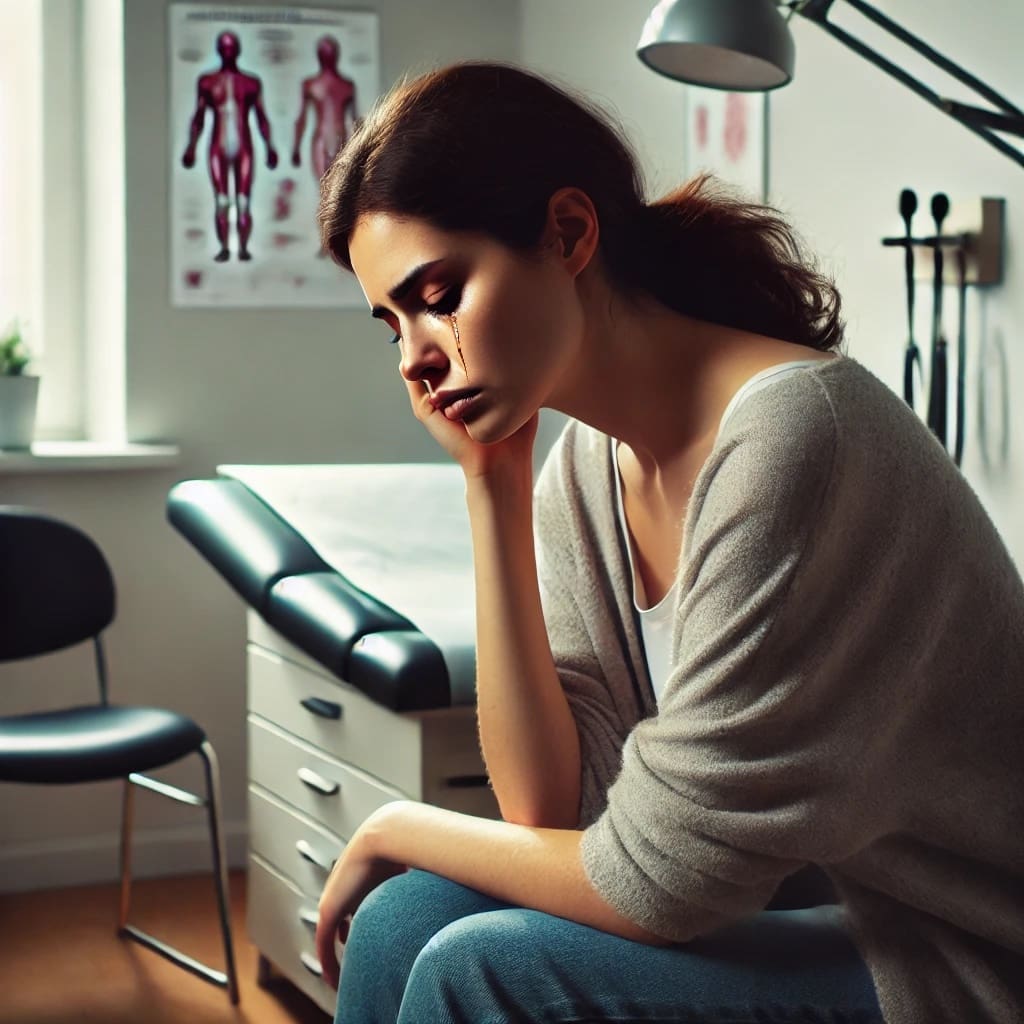Looking back on my interactions with the healthcare system throughout my abusive marriage, I am now able to recognize gross failures on behalf of numerous healthcare professionals. I wonder whether things would have turned out differently if this trajectory had been different. Maybe they wouldn’t have, but perhaps they would.
When I attempted suicide on February 2nd, 2013, nurses in the emergency room were helping me out of my robe when one nurse said, “She is fine, she can do it herself.” I wasn’t fine. I had just attempted to take my own life. I was anything but fine. Sure, had she never even made that statement, it was not likely my time in the ER that day would have led to me leaving my husband. However, at that moment, it was like she was standing with him, minimizing my pain. She may not have profoundly alleviated my pain by not saying that, but she did profoundly add to my pain by saying it.
I voluntarily went to the inpatient psychiatric wing after the ER. I received little to no help while I was there. It was a holding cell. A place where they could make sure I couldn’t hurt myself, but also a place that never tried to get to the bottom of what happened to make a 26-year-old woman not want to live anymore. I spent most of my time lying in my bed, staring at the ceiling. There were groups I could have gone to, but none of those groups were focused on helping me process my situation.
I saw a woman who was supposed to be my social worker intermittently. She did not attempt to get to the heart of what was going on – the mental, emotional, physical, sexual, and emotional abuse I was enduring. In fact, in the meeting with my husband and me, she told me I was being selfish for giving my husband an ultimatum when I stated that either we move in with my mother or get divorced. What about the ultimatum I was facing at that moment? Of either continuing down the path I was on and likely ending up dead or taking steps to improve my well-being? I was isolated. I was void. At that moment, she too was standing with him, minimizing my pain. My time in that wing could have been a turning point had someone just taken the time to talk to me and help me advocate for myself. Instead, I left no better off than I was when I got there.
Doctors and nurses ask the question “Do you feel safe at home?” like it is part of a checklist. Their body language and tone of voice are the same as if they ask you if you smoke. Firstly, if someone else is in the room when that question is asked (the significant other, a friend, or a family member) the answer to that question will almost always be yes. Answering any other way will lead to more problems behind closed doors or a series of questions we are not ready to answer.
Even when we are alone, if the question is asked in passing, we are still likely to say yes because not only are some of us in denial of what is happening, we have been gaslighted or manipulated so much that we think it is our fault. I had one doctor during my marriage who asked my husband to leave before asking me that question. She wheeled her chair over to me, looked me in the eyes, and flat-out asked if my husband ever hurt me. She was direct, she showed genuine concern for my well-being, and that was the only time throughout my entire marriage that I answered that question honestly. I replied, “Well he hasn’t hurt me in a long time.” Asking me if I feel safe at home is far too vague. Sure, I feel safe right now. I feel safe today. I have felt safe in the last few weeks, maybe even the last few months. Isn’t the point of asking that question to identify people who are being abused or have been abused and to get them help?
That doctor talked to me about abuse. She handed me a lipstick tube with the number to a domestic abuse hotline. That was the first time I told the truth. It was the first time someone verbally labeled what was happening to me. Yet in that moment, there are so many variables to think about if I were to leave. What will happen to my dog? We have joint finances, how will I get access to money? Where will I stay? How will I get my belongings? My husband is out in the waiting room, how would that situation be handled? Had I known then what I know now – that I could stay with a family member or the women’s shelter in town (which allows dogs) so I could have my dog with me. That the police could help me get my belongings. Even if I don’t stay at the women’s shelter, they have a person I can talk to who can walk me through every single step of this scary situation including how to file a restraining order and handle the finances. Had I known all of those things – maybe that moment would have turned out differently. These are all things healthcare providers aren’t aware of unless they have been in this situation or personally know someone who has.
Abuse is not a question on a checklist. It is bruises and trauma. It is gaslighting and manipulation. It is coercion and control. It is fear and isolation. It is dependence and uncertainty. If we are going to identify it and address it as a nation, our questions must be direct and specific, and our responses must be thorough. Abuse is far too important to be a question on a checklist.

